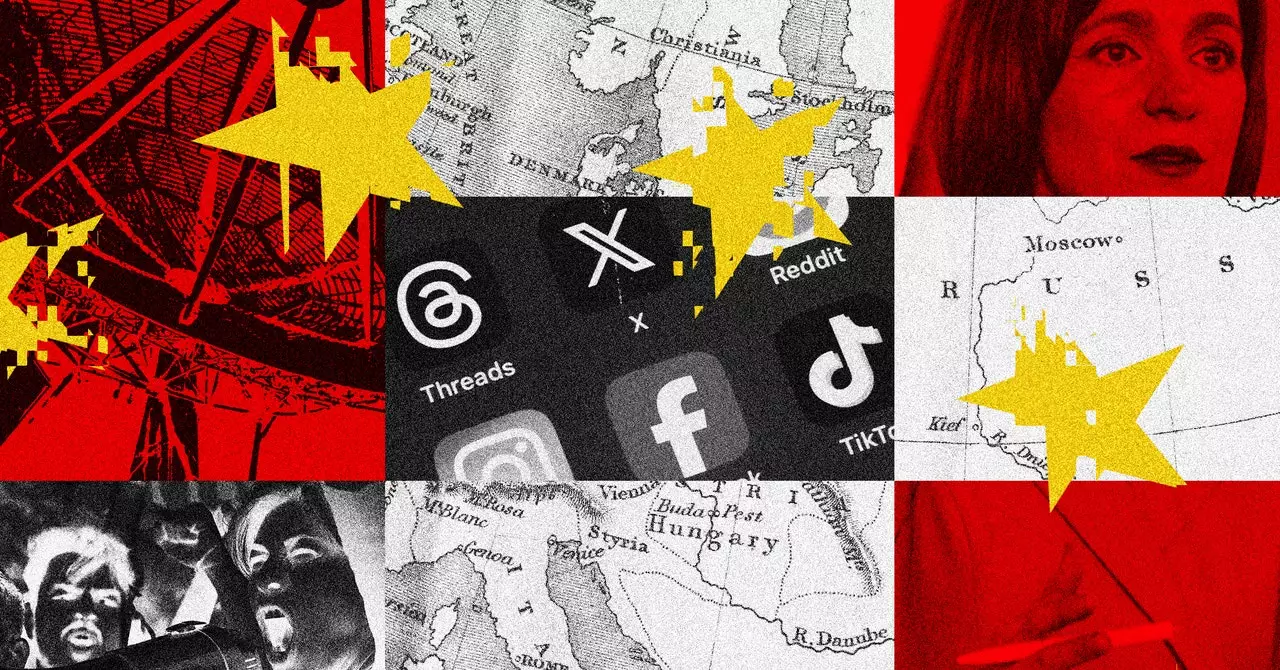The world of politics has entered a new realm where conventional methods are overshadowed by unconventional tactics, particularly in the realm of social media. A striking example emerged recently involving Brian Baumgartner, known for his role in the American version of *The Office*. In a provocative TikTok video, the actor appeared to rally against Maia Sandu, Moldova’s pro-European president, by ostensibly urging the population to oust her from power. This unusual intersection of celebrity influence and political discourse raised eyebrows and ignited conversations about the broader implications of such actions.
What makes this incident particularly concerning is its roots in disinformation campaigns linked to broader geopolitical tensions. The videos featuring Baumgartner were not mere social media pieces; they were commissioned through Cameo, a platform that allows fans to purchase personalized messages from their favorite celebrities. This fact indicates a more strategic maneuver by pro-Kremlin operatives aiming to undermine Moldova’s political landscape as the country gears up for crucial elections. Unlike traditional political endorsements, these videos represent the potential for manufactured celebrity support in disinformation campaigns that can easily mislead the public.
Moldova, a nation often overlooked on the international stage, has become a focal point for the ramifications of foreign interference, particularly from Russia. Nestled between Ukraine and the European Union, Moldova has experienced sustained efforts from external actors insistent on manipulating its political trajectory. This situation serves as a reminder that even smaller nations can become battlegrounds for larger geopolitical games. The presence of misinformation in Moldova—amplified through social media platforms—underscores the vulnerability of modern democracies to foreign influence and manipulation.
As observed by Ana Revenco, Moldova’s former interior minister and current head of the Center for Strategic Communication and Combating Disinformation, the complexity of these disinformation operations is unprecedented. Russian-linked accounts have ramped up activity as the nation approaches a pivotal referendum on European Union membership. The ability of these accounts to activate previously dormant profiles speaks volumes about the strategic foresight of disinformation campaigns. This raises pressing questions about the responsibilities of social media companies to monitor and regulate such activities to protect democratic processes.
The implications of the Moldovan situation extend beyond its borders, signaling that vulnerabilities in the digital landscape are global issues. With platforms like Facebook, TikTok, and YouTube increasingly becoming vessels for political maneuvering, there seems to be an urgent need for each country to reassess its defenses against potential online manipulation. As events unfold in Moldova, they become a cautionary tale for other nations that might find themselves similarly vulnerable to the complexities of modern disinformation campaigns.
The intersection of celebrity culture and political instability in Moldova illustrates a dangerous trend that could have far-reaching consequences. As technology evolves and social media continues to play an influential role in political discourse, it is imperative that societies recognize their vulnerabilities and take proactive steps to safeguard their democratic processes against external manipulation.


Leave a Reply